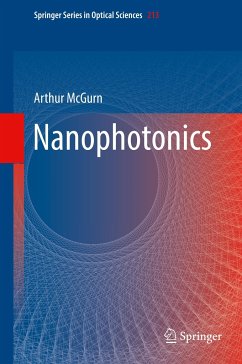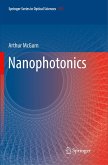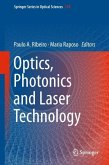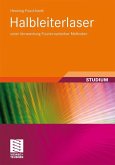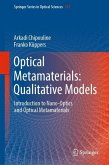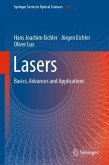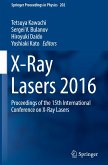This book gives a readable introduction to the important, rapidly developing, field of nanophotonics. It provides a quick understanding of the basic elements of the field, allowing students and newcomers to progress rapidly to the frontiers of their interests.
Topics include: The basic mathematical techniques needed for the study of the materials of nanophotonic technology; photonic crystals and their applications as laser resonators, waveguides, and circuits of waveguides; the application of photonic crystals technology in the design of optical diodes and transistors; the basic properties needed for the design and understanding of new types of engineered materials known as metamaterials; and a consideration of how and why these engineered materials have been formulated in the lab, as well as their applications as negative refractive index materials, as perfect lens, as cloaking devices, and their effects on Cherenkov and other types of radiation. Additionally, the book introduces the new field of plasmonics and reviews its important features. The role of plasmon-polaritons in the scattering and transmission of light by rough surfaces and the enhanced transmission of light by plasmon-polariton supporting surfaces is addressed. The important problems of subwavelength resolution are treated with discussions of applications in a number of scientific fields. The basic principles of near-field optical microscopy are presented with a number of important applications. The basics of atomic cavity physics, photonic entanglement and its relation to some of the basic properties of quantum computing, and the physics associated with the study of optical lattices are presented.
Topics include: The basic mathematical techniques needed for the study of the materials of nanophotonic technology; photonic crystals and their applications as laser resonators, waveguides, and circuits of waveguides; the application of photonic crystals technology in the design of optical diodes and transistors; the basic properties needed for the design and understanding of new types of engineered materials known as metamaterials; and a consideration of how and why these engineered materials have been formulated in the lab, as well as their applications as negative refractive index materials, as perfect lens, as cloaking devices, and their effects on Cherenkov and other types of radiation. Additionally, the book introduces the new field of plasmonics and reviews its important features. The role of plasmon-polaritons in the scattering and transmission of light by rough surfaces and the enhanced transmission of light by plasmon-polariton supporting surfaces is addressed. The important problems of subwavelength resolution are treated with discussions of applications in a number of scientific fields. The basic principles of near-field optical microscopy are presented with a number of important applications. The basics of atomic cavity physics, photonic entanglement and its relation to some of the basic properties of quantum computing, and the physics associated with the study of optical lattices are presented.

